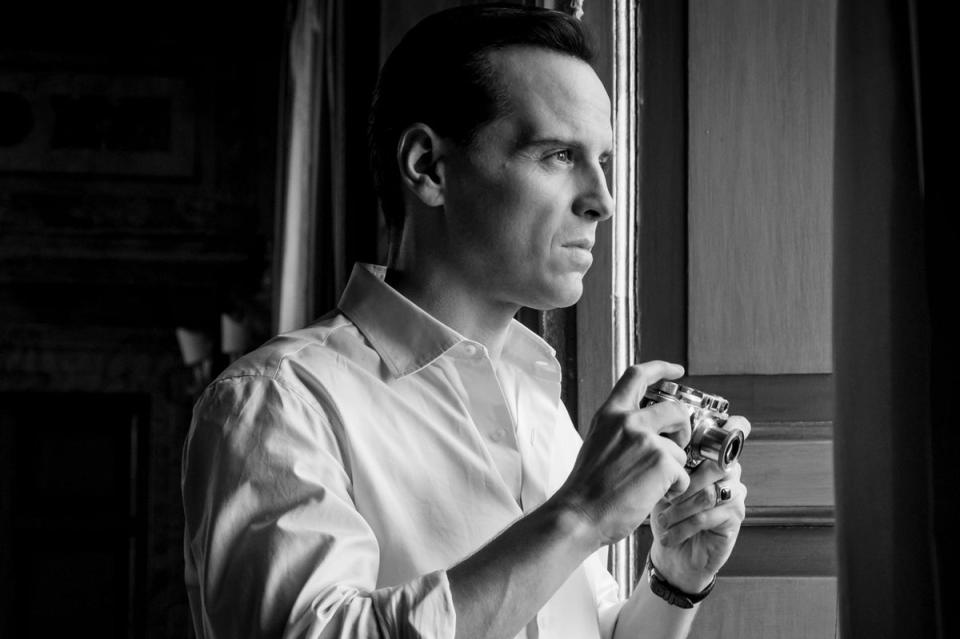Ripley review: Andrew Scott is all wrong for this otherwise decent Netflix adaptation
To describe Tom Ripley as a conman feels like doing the character a disservice. Patricia Highsmith’s most prolific creation – he appears in five of her novels written over 37 years – is more of a phantom, a lover of shiny things who glides, charmingly if opaquely, through some of the ritziest places on earth. He collects identities and riches, while racking up an impressive body count. To many he’ll always bear the face of Matt Damon, who played the role in 1999’s glamorous adaptation of Highsmith’s first novel featuring the man, The Talented Mr Ripley. And that, sadly, may be the undoing of Netflix’s new attempt.
Ripley, an eight-part limited series streaming now, is often fairly decent. The cliff sides of the Amalfi Coast and the back streets of Capri are captured breathtakingly, the show’s black-and-white photography only enhancing the expense it seemingly took to put all of this together. The length of the series – one episode runs at 74 minutes – isn’t too much of a bug-bear, either. A pivotal scene of murder and its desperate clean-up, for example, becomes agonisingly tense when stretched to around 20 minutes of screentime.
Rather, Ripley falters because of its leading man, the typically very good Andrew Scott, who feels all wrong for this. Where Highsmith envisaged Ripley as an eerily calm social climber, who is charming and naive when he’s not beating people around the head with the oar of a boat, Scott plays him as more of an overt ghoul – someone oozing sociopathic menace in the corners of fancy ballrooms. Dressed in a leather jacket and sporting greased-up hair, he looks more like a lost Mitchell brother than a high society interloper. You never quite get used to it.
The year is 1961, and we first encounter Ripley on the streets of Manhattan, enacting slippery, petty cons to get by. Then a tantalising offer drops into his lap: travel to Italy on a powerful shipping magnate’s dime to woo Dickie Greenleaf (Johnny Flynn), the magnate’s errand son, and encourage him to abandon his life of gilded continental nothingness and come back to the family business. Ripley is a friend-of-a-friend of Dickie’s from university, or at one point may have claimed to be, and readily agrees to the terms of the deal. Once in Italy, he contrives a meeting with Dickie and his restless wife Marge (Dakota Fanning), ingratiating himself into their world of rest, relaxation and latent sexual repression.
The story unfurls from there, matching beat-for-beat the twists of Highsmith’s novel. Flynn’s American accent is all over the place but he makes for a nicely congenial Dickie. Fanning is strong, all icy glares and suspicion. You can’t help, though, but compare and contrast with the 1999 film, particularly when it comes to casting. After all, we are talking about one of the greatest ensembles of the Nineties – Jude Law at peak beauty, Gwyneth Paltrow at her most curiously disillusioned. That Ripley casts the wooden, monotone Eliot Sumner in the role of Ripley’s frisky rival Freddie Miles – so flamboyantly and assuringly played by Philip Seymour Hoffman in 1999 – is especially egregious.

Ripley isn’t at all the disaster it could have been, primarily because its source material is so strong that you’d have to be incredibly dense to screw it up too badly. But it’s haunted by the spirit of past adaptations, unable to wrestle free from the shackles of earlier perfection. The 1999 film is also, in the UK at least, sitting side-by-side with the Andrew Scott version on the Netflix carousel right now. Whose bright idea was that?
‘Ripley’ is streaming on Netflix


